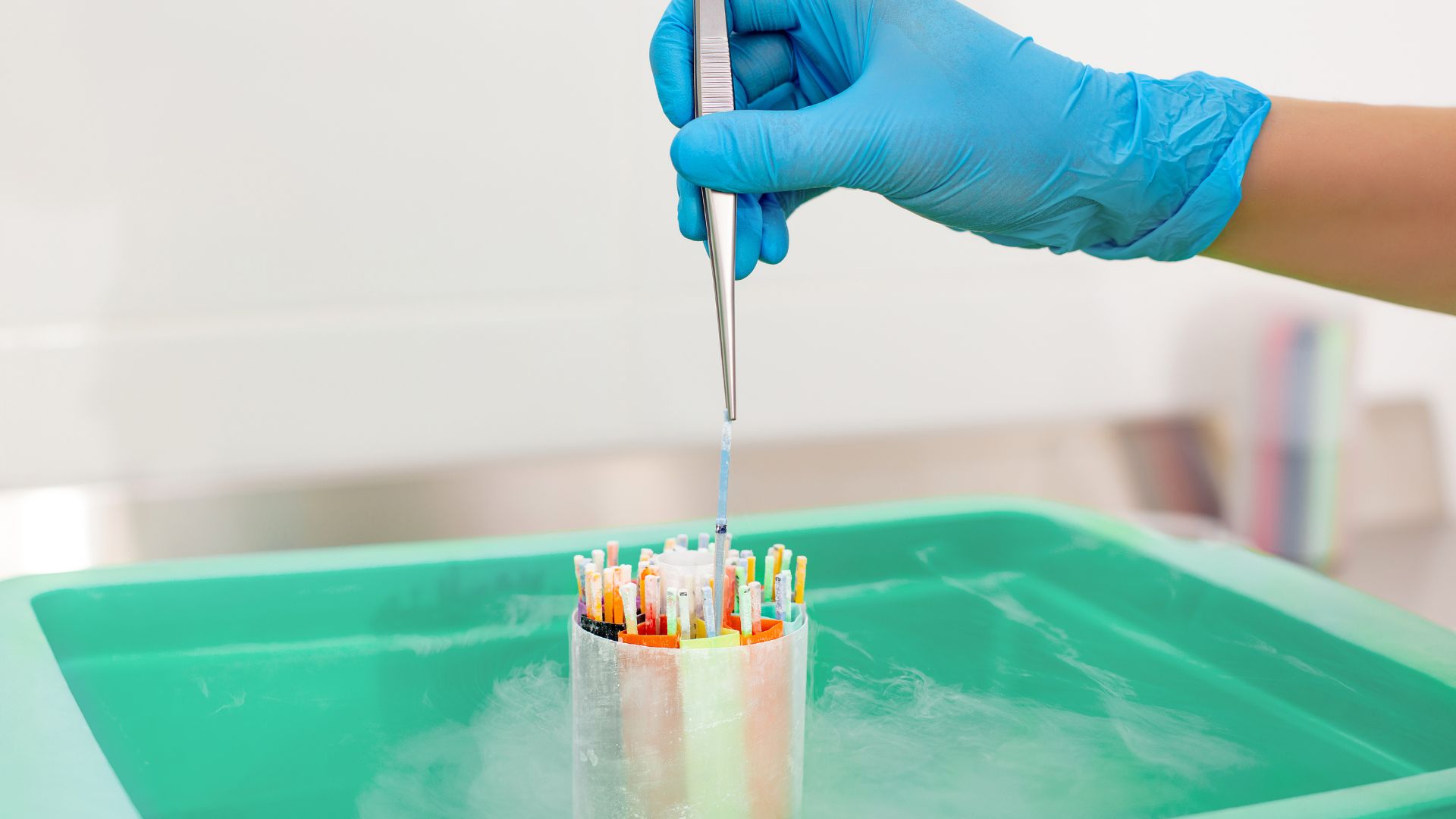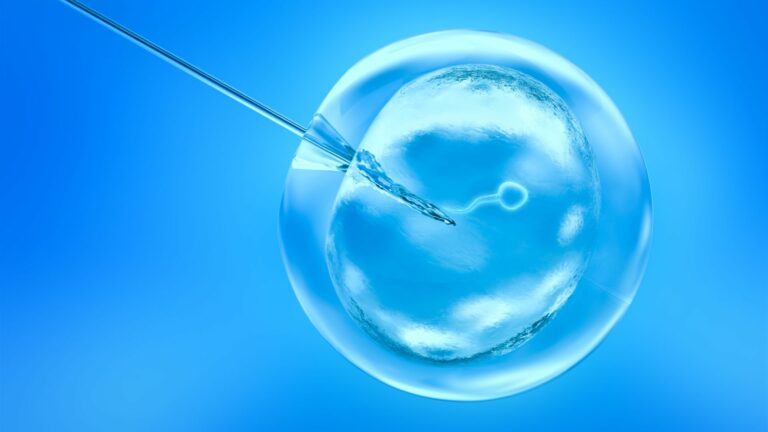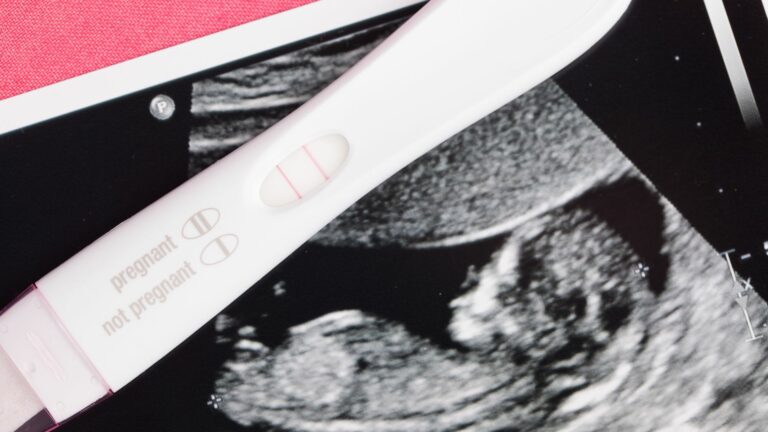
In the realm of reproductive medicine, egg freezing, also known as oocyte cryopreservation, has emerged as a groundbreaking procedure that has transformed the landscape of fertility preservation.
For individuals considering this option, several common questions may arise: How effective is egg freezing? What impact does it have on women’s lives and the choices they make? And how has technology revolutionized the egg freezing process?
In this comprehensive article, we will delve into the advancements, implications, and evolving trends surrounding egg freezing, providing valuable insights for those seeking to understand this powerful tool for fertility preservation.
Key Takeaways
| Insight | Significance |
|---|---|
| Vitrification has dramatically increased egg freezing success rates to 90% or higher. | This technological advancement has significantly improved the chances of achieving a successful pregnancy using frozen eggs. |
| Egg freezing empowers women with greater reproductive autonomy. | The procedure allows women to make informed decisions about their family planning timeline, taking into account personal and professional goals. |
| Egg freezing extends the fertility window. | Women now have the potential to delay childbearing without compromising their chances of pregnancy later in life. |
| Egg freezing offers career flexibility. | Women can pursue their professional aspirations without the immediate pressure of a ticking biological clock. |
| Egg freezing provides a sense of control and peace of mind. | Having a fertility backup plan can alleviate anxiety and provide reassurance for those unsure about their future family plans. |
| Ongoing research and development continue to optimize egg freezing outcomes. | Advancements in treatment protocols tailored to individual factors like age and ovarian reserve hold promise for further improving success rates. |
The Vitrification Revolution: A Quantum Leap in Egg Freezing Success
One of the most significant advancements in egg freezing technology has been the development of vitrification, a flash-freezing technique that has revolutionized the field.
Prior to vitrification, traditional slow-freezing methods posed a risk of ice crystal formation within the eggs, potentially causing damage and reducing their viability.
Vitrification, on the other hand, rapidly cools eggs to ultra-low temperatures, typically around -196°C, in a matter of seconds.
This swift freezing process prevents the formation of harmful ice crystals, resulting in a remarkable improvement in egg survival rates and quality.
The impact of vitrification on egg freezing success rates has been nothing short of extraordinary:
- Skyrocketing Success Rates: Before the advent of vitrification, only about 60% of eggs survived the freezing and thawing process.
However, with the implementation of vitrification, survival rates have soared to an impressive 90% or higher, as reported by the Society for Assisted Reproductive Technologies (SART) [Society for Assisted Reproductive Technologies (SART) – sart.org]. - Preserving Egg Quality: Beyond improving survival rates, vitrification plays a crucial role in maintaining the quality of the frozen eggs.
Healthy, high-quality eggs are essential for successful fertilization and embryo development, and vitrification helps ensure that the eggs remain in optimal condition throughout the freezing and thawing process.
To better understand the vitrification process, let’s break it down into a simplified step-by-step guide:
- Stimulation: The first step involves the use of fertility medications to stimulate the ovaries, encouraging them to produce multiple mature eggs.
- Egg Retrieval: Once the eggs have matured, a minimally invasive procedure is performed to collect the eggs from the ovaries.
- Vitrification: The collected eggs are then rapidly frozen using the vitrification technique, ensuring their preservation at ultra-low temperatures.
- Storage: The frozen eggs are securely stored in liquid nitrogen tanks, maintaining their viability for future use.
- Thawing and IVF: When the woman is ready to conceive, the frozen eggs are carefully thawed and used for in vitro fertilization (IVF).
The thawed eggs are fertilized with sperm in a laboratory setting, and the resulting embryos are transferred to the woman’s uterus for implantation.
For a more comprehensive understanding of the egg freezing process and its nuances, it is recommended to consult reputable sources such as the American Society for Reproductive Medicine (ASRM) [https://www.asrm.org/] and SART [Society for Assisted Reproductive Technologies (SART) – sart.org].
While vitrification has significantly improved egg freezing outcomes, it is essential to acknowledge that it is not a guarantee of pregnancy.
Age remains a critical factor in determining success rates, with women who freeze their eggs at a younger age (ideally under 35) having the highest chances of achieving a successful pregnancy in the future.
Redefining Choices: The Empowering Potential of Egg Freezing
The advancements in egg freezing technology have far-reaching implications for women, empowering them with greater control over their reproductive choices and career trajectories.
Let’s explore the various ways in which egg freezing is redefining the landscape of fertility preservation and women’s autonomy.
Expanding Reproductive Options
- Extending the Fertility Window: One of the most significant benefits of egg freezing is the ability to potentially delay childbearing without compromising the chances of pregnancy using one’s own eggs.
This empowers women to make informed decisions about their family planning timelines, taking into account personal and professional goals, relationship status, and overall readiness for parenthood. - Preserving Fertility for Medical Reasons: Egg freezing also serves as a valuable option for women facing fertility-impacting medical treatments, such as chemotherapy for cancer or surgical interventions for conditions like endometriosis.
By preserving their eggs before undergoing these treatments, women can safeguard their ability to have biological children in the future, providing hope and peace of mind during a challenging time. - Boosting Confidence and Reducing Anxiety: For many women, the uncertainty surrounding future family plans can be a source of significant anxiety.
Egg freezing offers a proactive approach to fertility preservation, allowing women to create a backup plan and alleviate some of the pressure associated with the ticking biological clock.
Knowing that they have taken steps to preserve their fertility can provide a sense of empowerment and control over their reproductive future.
Balancing Career and Family Aspirations
- Focusing on Professional Goals: Egg freezing has become increasingly popular among women who wish to prioritize their career aspirations without sacrificing their desire to have children in the future.
By freezing their eggs, women can pursue their professional goals with greater flexibility, without the immediate pressure of a ticking biological clock.
This is particularly valuable in demanding fields where career advancement may coincide with peak fertility years. - Creating a Stable Foundation: The option to delay childbearing through egg freezing allows women more time to establish themselves professionally, achieve financial stability, and create a strong foundation for starting a family.
This can lead to improved work-life balance and a greater sense of readiness when the time comes to embark on the journey of parenthood.
Psychological Considerations and Actionable Steps
While egg freezing offers numerous benefits, it is important to approach the decision with a realistic mindset and carefully consider the psychological implications. Here are some key points to keep in mind:
- Managing Expectations: It is crucial to understand that egg freezing, while a powerful tool, does not guarantee a successful pregnancy.
Factors such as the woman’s age at the time of freezing, egg quality, and individual health conditions can impact the success rates.
It is essential to have open and honest conversations with healthcare providers to set realistic expectations and make informed decisions. - Addressing Societal Pressures: The increasing popularity of egg freezing has also raised concerns about potential societal pressures and the notion of “having it all.”
It is important to recognize that egg freezing is a personal choice and should not be seen as a mandatory step for women who wish to balance career and family.
Each individual’s circumstances and priorities are unique, and the decision to freeze eggs should be based on careful consideration and personal values.
For those considering egg freezing, here are some actionable steps to help navigate the process:
- Research and Educate Yourself: Take the time to thoroughly research egg freezing using reliable sources such as the American Society for Reproductive Medicine (ASRM) [https://www.asrm.org/] and the Society for Assisted Reproductive Technologies (SART) [Society for Assisted Reproductive Technologies (SART) – sart.org].
Familiarize yourself with the procedure, success rates, and potential risks to make an informed decision. - Consult with a Fertility Specialist: Schedule a consultation with a qualified fertility specialist to discuss your individual situation, including your age, overall health, and fertility goals.
They can assess your ovarian reserve, provide personalized recommendations, and guide you through the egg freezing process. - Consider the Financial Implications: Egg freezing can be a significant financial investment, with costs varying depending on factors such as the fertility clinic, medication expenses, and storage fees.
Research the costs associated with the procedure and explore options for fertility insurance coverage or financing programs offered by some clinics.
Remember, the decision to freeze your eggs is deeply personal and should be made after careful consideration of your unique circumstances, values, and goals.
Prioritize your well-being and seek support from trusted healthcare providers, family, and friends throughout the process.
The Evolving Landscape: Looking Ahead
As egg freezing technology continues to advance, the future holds immense potential for further empowering women and reshaping the landscape of fertility preservation.
Ongoing research and development efforts aim to optimize treatment protocols based on individual factors such as age and ovarian reserve, potentially leading to even higher success rates and more personalized approaches.
One of the key challenges that needs to be addressed is the affordability and accessibility of egg freezing.
Efforts to expand insurance coverage for fertility preservation procedures and develop innovative financing options are crucial steps towards making egg freezing more widely available to women from diverse socioeconomic backgrounds.
Open communication and education also play a vital role in the evolving landscape of egg freezing.
It is essential for healthcare providers to engage in transparent discussions with patients, providing them with accurate information, setting realistic expectations, and supporting them in making informed decisions that align with their personal values and goals.
As we look towards the future, it is important to recognize that while egg freezing is a powerful tool for fertility preservation, it is not a guaranteed path to parenthood.
Women should approach the decision with a clear understanding of the potential benefits and limitations, and make choices that prioritize their overall well-being and life aspirations.
Engage in the Conversation
We invite you to share your thoughts, experiences, and questions about egg freezing in the comments section below.
Have you considered egg freezing as an option for fertility preservation? What factors have influenced your decision-making process?
Your insights and perspectives can help foster a supportive and informative community dialogue.
Resources for Further Exploration
If you are interested in learning more about egg freezing and fertility preservation, we recommend exploring the following reputable resources:
- American Society for Reproductive Medicine (ASRM): https://www.asrm.org/
- Society for Assisted Reproductive Technologies (SART): [Society for Assisted Reproductive Technologies (SART) – sart.org]
- IVF FAQs
- Coping with IVF Failure
- How to Increase IVF Success Chances
- Egg Freezing in India: Options, Costs, and Considerations
- Advances in Egg Freezing and Its Implications
Sources: Society for Assisted Reproductive Technologies (SART), American Society for Reproductive Medicine (ASRM)






